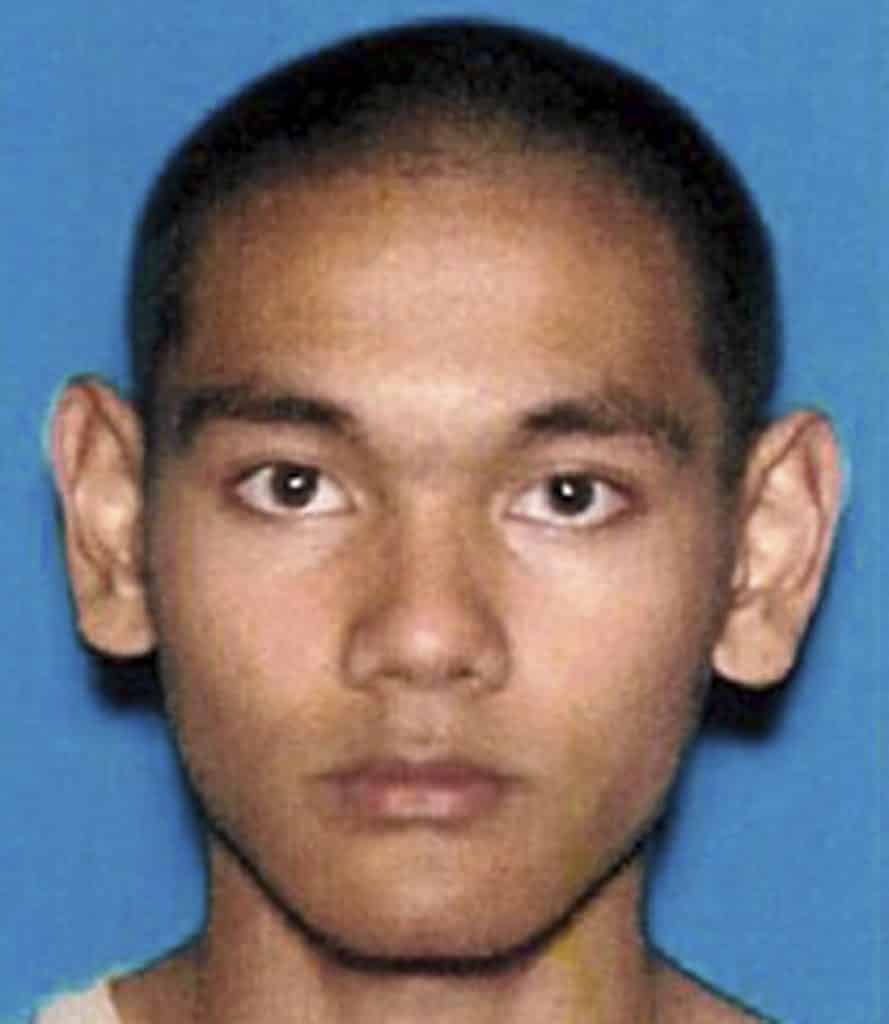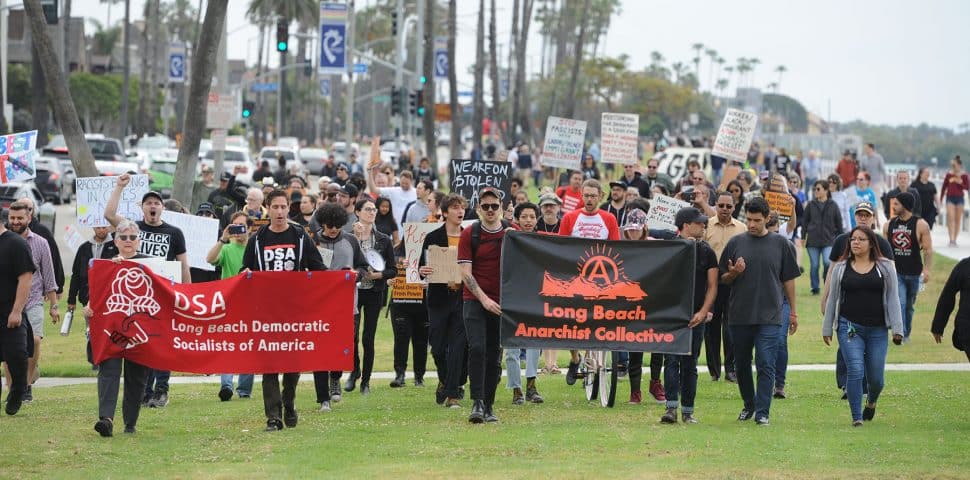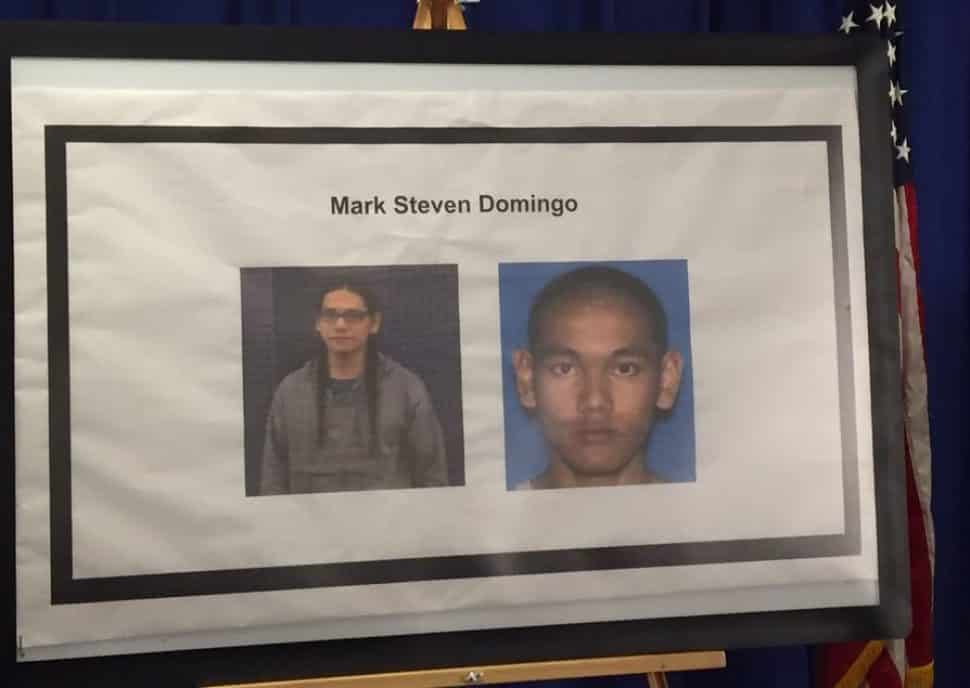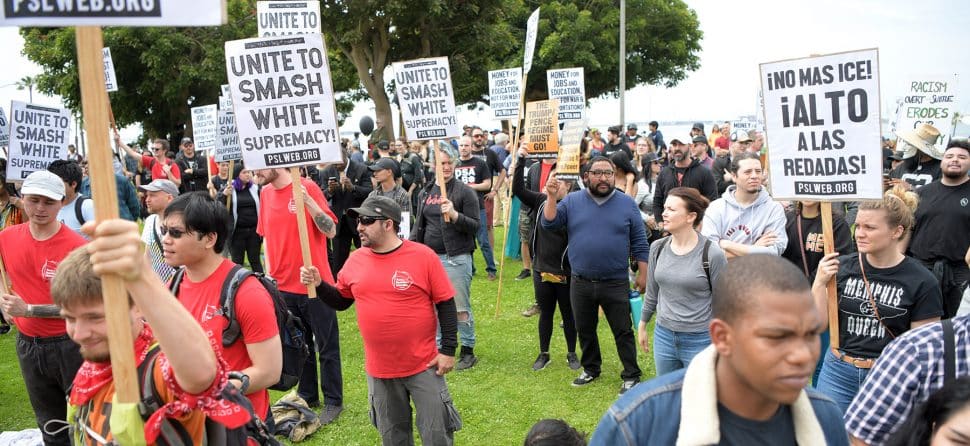“We can always hit the cops,” Mark Domingo told an undercover informant as they brainstormed ideas for a terrorist attack, according to the FBI.
The two were getting dinner and attending a prayer service on March 18 while the informant was secretly recording their conversation as part of a sting, the FBI says in court papers.
As they drove, Domingo allegedly pointed out possible targets: police cars, churches and a National Guard Armory. At one point, the FBI says, Domingo bragged about his AK-47 with nine magazines.
But the informant cautioned Domingo, according to a detailed account laid out in an affidavit filed earlier this week:
“You’re going to end up like—“
“A martyr,” Domingo interrupted.
“No. They going to put you in jail.”
“If they catch me alive.”
As the informant pressed him for a more concrete plan, Domingo allegedly continued:
“Something has to be done.”
This is one of a handful of scenes the FBI describes where undercover operatives appear to try to steer or delay Domingo, a 26-year-old Army veteran from Reseda who is now charged with trying to bomb a weekend rally in Long Beach.

The court papers paint Domingo as a man bent on carrying out a mass murder as retribution for last month’s mosque shootings in Christchurch, New Zealand, where an avowed white supremacist killed 50 people.
In a 30-page criminal complaint, the FBI details multiple instances where undercover operatives apparently attempted to guide Domingo away from a spur-of-the-moment shooting until he eventually developed the plan to plant an IED at the rally.
The FBI says it thwarted the plan in part by having an undercover agent give him fake bombs. They then arrested him on Friday after he traveled to Long Beach’s Bluff Park to check out the planned blast zone, officials said.
On Sunday, rally attendees were unaware. Although the white nationalist–linked group canceled its demonstration, about 200 counter-protestors still showed up.

Some later said they were dismayed to find out Domingo had been arrested only two days before the event. The FBI had been watching Domingo for nearly two months, during which time he also talked about the possibility of spraying the rally with gunfire, according to court documents.
But Lawrence Rosenthal, a Chapman University law professor and former federal prosecutor, said FBI agents in instances like these face tough calls as they try to build a strong case while gauging the public-safety threat.
“It’s a difficult balance,” Rosenthal said. “On the one hand, if you act too quickly people will say this guy was harmless and he was just venting in a chatroom. On the other hand, they worry that if they don’t make an arrest they will be blamed if something happens or they lose track of him. That’s the true FBI nightmare.”
Rosenthal said prosecutors have a good case for criminal intent because Domingo allegedly put his plans into action when he bought hundreds of nails and delivered them to the bomb-maker to use as shrapnel in the IED.
However, prosecutors must prove that Domingo acted on his own accord, he said.
“What we worry about is entrapment—is the idea coming from the agent or is it the suspect’s own idea?” he said.
READ: the full criminal complaint against Domingo.
In an affidavit filed as part of the criminal complaint, the FBI alleges Domingo was intent on retribution before an undercover informant floated the idea of using IEDs.
At various points, the FBI alleges Domingo:
- Talked about opening fire on Jews walking to a nearby synagogue, prompting an operative to caution him police would be ready for it so soon after the New Zealand shooting
- Brought an AK-47-style rifle to a meeting with the undercover informant and vaguely suggested he was ready to walk outside and start shooting homeless people
- Bragged about replacing the wooden stock of his rifle with a foldable version to make it easier to wield in a drive-by shooting
- Said he wanted to kill his neighbor, with whom he’d been arguing about trash on the lawn, at which point an operative repeatedly tried to calm him down
In one case, the affidavit describes a dinner-meeting in mid-March where the undercover informant tells Domingo he is “so pure” after recently converting to Islam.
“You don’t need to, like, you don’t have to do this,” the informant reportedly said. “You know that, right? You’re pure.”

The affidavit says Domingo responded by pointing to a police car and saying they have bullet-proof glass, but officers “roll their window down sometimes.”
Allah would reward Domingo if he’s patient, the informant reportedly said.
The FBI took notice of Domingo in early March, when he suggested in a private online group message that America needs “a taste of the terror they gladly spread all over the world,” according to the affidavit.
On March 14, an FBI employee started sending him private chats when Domingo said “a message needs to be sent,” in response to the New Zealand shooting.
The employee cautioned Domingo, saying police would be ready for any retaliatory attack the next day, according to the FBI, but Domingo floated the idea of shooting “a bunch of jews” as they walked to synagogue on a nearby street.
Two days later, he allegedly told a different FBI operative he’d started sleeping with his rifle next to his bed after watching video of the Christchurch massacre the shooter live-streamed.
“That’s reactionary extremism,” professor Brian Levin said of Domingo’s alleged response to the massacre.
Levin, who studies hate and extremism for California State University, San Bernardino, said this is known to happen, “where past catalytic events influence or inspire a future terror act.”
Social media has helped build a sort of extremist folklore around major attacks, according to Levin.
An event “gets inscribed as the next diverse chapter in a book of evil,” and helps inspire loners or splinter groups even if they’re not connected to any larger terror-group infrastructure, he said.

FBI officials said they don’t believe Domingo was in contact with any other co-conspirators beyond the ones who were actually working with the FBI.
After one of those covert FBI operatives proposed IEDs to Domingo, his aspirations apparently grew beyond a mass shooting, according to court papers.
He allegedly talked about placing a bomb on the freeway, at the Santa Monica Pier or at another rally in Huntington Beach.
It was a much better plan, Domingo allegedly said, than spraying bullets and praying.
“If we do this, LA is going to be locked down,” he said, according to the FBI.
After evaluating their timelines and possible body counts, Domingo and the undercover informant settled on the event in Long Beach even after word spread that the original white-nationalist rally may have been canceled, according to the FBI.
“Let’s just sleep on it. If we’re still as motivated, we’ll give the go-ahead,” Domingo said, according to the affidavit. “I’ll give the go-ahead.”
The next day, according to the FBI, Domingo texted the person he believed to be the bomb-maker.
They say he sent a photo of a crescent moon over a skyline, a coded message that the operation was a go.
Suspect in attempted Long Beach bombing was kicked out of Army

